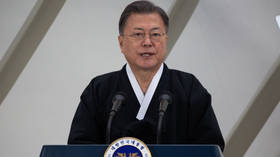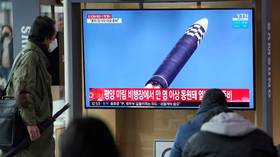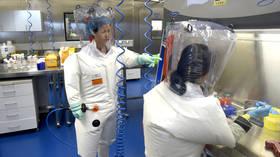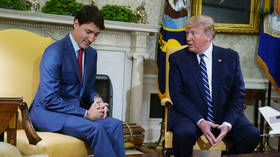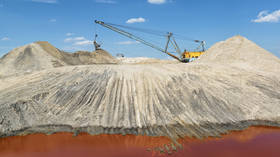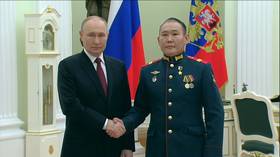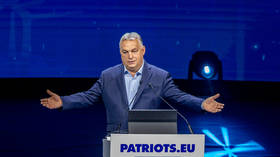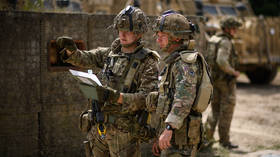South Korea in US nuclear talks – media
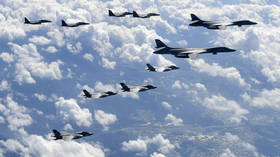
A group of advisers to South Korea’s president-elect, Yoon Suk-yeol, have met US National Security Advisor Jake Sullivan in a bid to strengthen “deterrence” by securing an enhanced US presence on the Korean Peninsula. This would include the deployment of nuclear submarines and bombers, Reuters reported on Wednesday, citing the delegation members.
“Deploying the strategic assets is an important element of reinforcing the extended deterrence, and the issue naturally came up during the discussions,” Park Jin, a South Korean lawmaker who led the delegation on its visit to Washington, told journalists.
Park added that the two sides explored options for boosting America’s extended nuclear deterrence and coordinating efforts against the threat posed by North Korea. The delegation also sought to arrange a meeting between Yoon and US President Joe Biden after the South Korean leader officially takes office.
Yoon, a conservative politician and former prosecutor general who won the presidential elections on March 9, will be sworn in on May 10. Redeployment of US nuclear-capable bombers and submarines to the peninsula was part of his election agenda, as he vowed to “respond firmly” to threats posed by Pyongyang.
A poll held in South Korea in September 2021 suggested that some 70% of the population support the idea of Seoul developing its own nuclear capabilities. The country’s conservatives have called for either the redeployment of US nukes or a NATO-style arrangement that would see South Koreans being trained to use nuclear arms in case of a conflict.
Washington has previously expressed skepticism about such a prospect. “All I can say is, US policy would not support that,” Mark Lambert, the US deputy assistant secretary of state for Japan and Korea, said back in September 2021.
On Wednesday, a White House official who was asked about the talks with the South Korean delegation said only that the two sides “discussed generally” US defense commitments. The US once had its tactical nuclear weapons deployed to South Korea but withdrew them in the early 1990s.
Yoon is also on the verge of reversing another policy of his liberal predecessor, Moon Jae-in. The outgoing president scaled back regular joint drills with the US in a bid to reduce tension with Pyongyang. The exercises were largely focused on computer simulations and avoided involving such weapons as bombers and aircraft carriers during his presidency. North Korea has long viewed the drills as a rehearsal for a potential war.
Now, Yoon is seeking to “normalize” the joint exercises again. South Korean media have reported that the upcoming spring exercises could feature nuclear bombers for the first time in five years. “We agreed that what’s most important is to maintain deterrence so that we can strongly respond to any possible North Korean provocations,” Park said, following the South Korean delegation’s talks in Washington.
The development comes amid a new spike in tensions on the peninsula. In late March, Pyongyang said it test-fired another intercontinental ballistic missile. The test was followed by a heated verbal exchange between the two nations’ officials, in which Seoul touted its ability to swiftly strike North Korea and Pyongyang warned that South Korea would suffer a “terrible disaster” if it violated an inch of North Korea’s territory.
